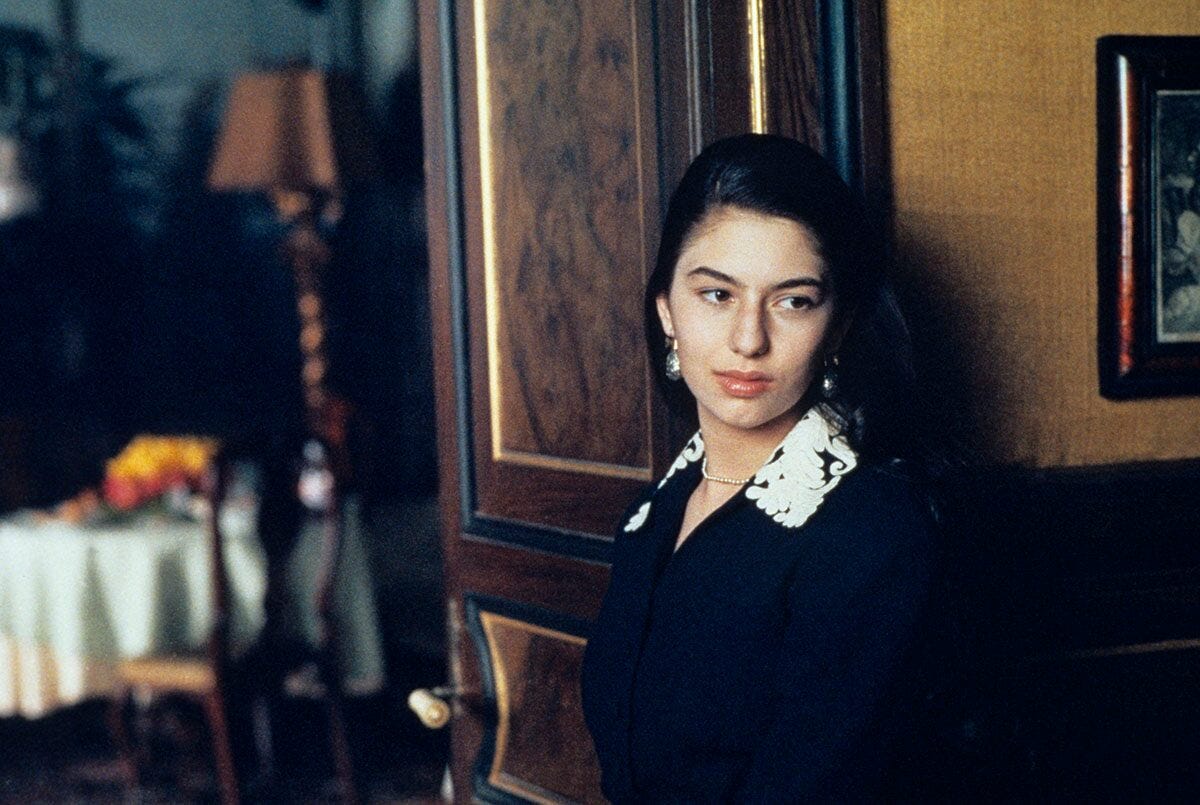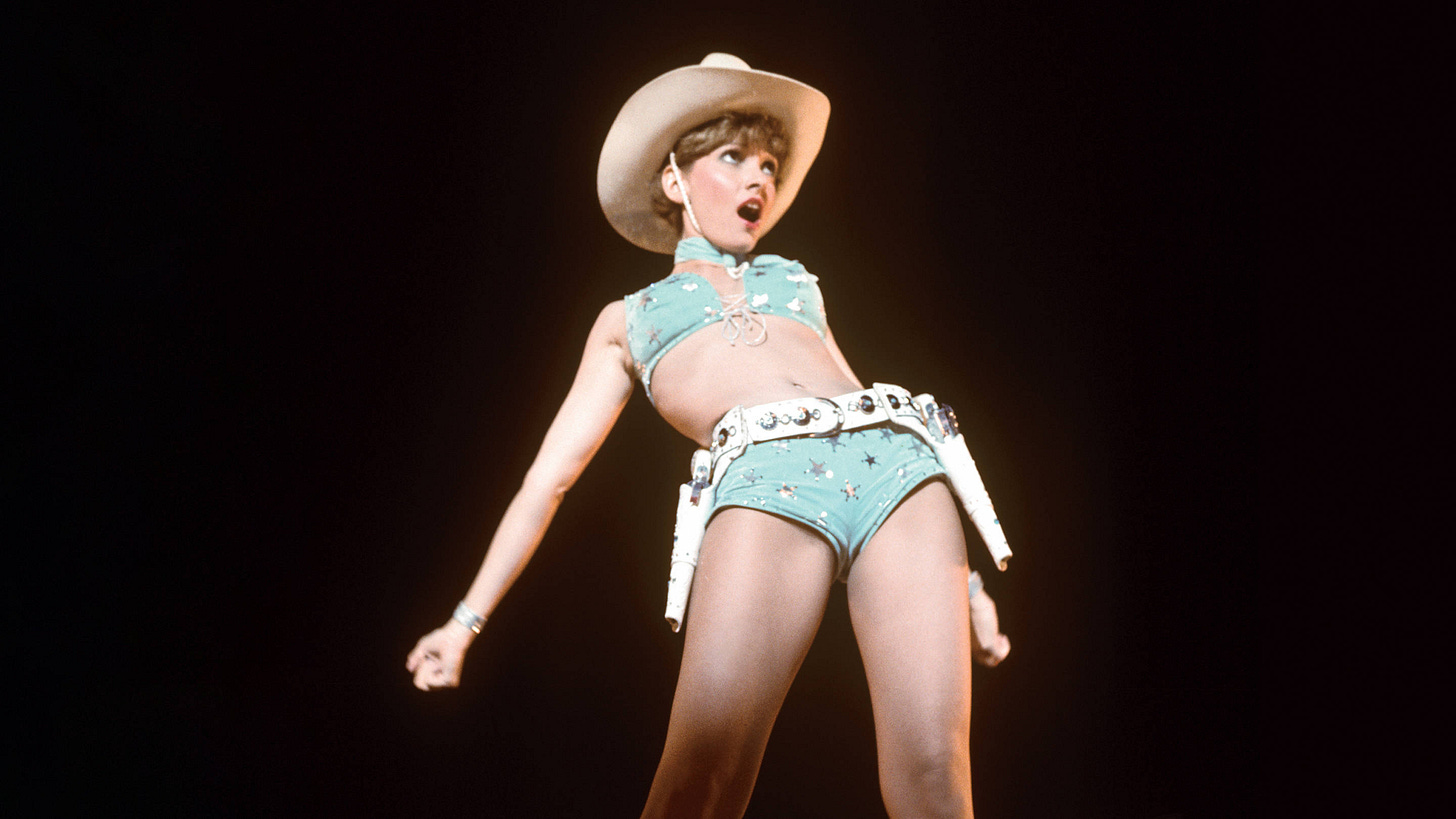Related highlights:
—
For a stylish, avant-garde filmmaker, Sofia Coppola sounds remarkably narrow-minded.
The Lost in Translation and On the Rocks director confessed recently that she “can’t watch movies that don’t have any female characters in it.”
Any of them? That’s a lot of masterpieces.
The 49-year-old director’s admission came amid a broader discussion with fellow filmmaker Emerald Fennell.
“I would work with [actress Carey Mulligan] again in a heartbeat,” said Fennell, referring to her experience working on the set of the 2020 dark comedy Promising Young Woman, “but weirdly, and I don’t know if it’s subconsciously deliberate, I don’t think the main thing I’m writing now has anything she could [do] as it has no women — ”
“No women in it?” Coppola interjected.
“Oh, no! No women of [Mulligan’s character’s] age,” said Fennell.
Responded Coppola, “I can’t watch movies that don’t have any female characters in it. I’m like, ‘Who are these people I need to connect with?'”
“It’s tough, isn’t it?” asked Fennell. “I can’t see any more films of men in raincoats, talking about serious things.”
It's possible this is simply an inside joke between two female directors. If not, what a strange position for these filmmakers to hold.
As storytellers, they of all people should know there is value even to movies that have all- or predominately male casts, especially when one ticks through the list of such films.
Take, for example, David Lean’s 1962 epic Lawrence of Arabia, the king of female-less movies, whose themes include violence, leadership, identity, loyalty, myths, and corruptibility. Or take 2003’s Master and Commander, a film that likewise stars no women and likewise focuses on notions of honor, duty, heroism, and camaraderie. These are not movies where men simply sit around arguing about who has the best curveball (although I would pay good money to see Peter O'Toole and Claude Rains have that fight). These are stories that deal in universal, high-level concepts, which both male and female audiences are asked, and expected, to contemplate and enjoy. Both groups are equally capable of appreciating the exploration and portrayal of ideas regarding identity, friendship, and fate, even if such concepts are presented by male actors. Yet, the way Coppola tells it, whether the universal themes presented in films such as Lawrence of Arabia are interesting is dependent on whether women appear on-screen. But the actors are not the point; the virtues and vices they embody are. The actors are merely vessels.
Nearly as bad as Coppola subordinating art to its demographic appeal is that she is simply missing out, and not just on a personal level. There are a great many female-less films that boast of both technical and artistic breakthroughs. On a purely professional level, a filmmaker can benefit greatly from observing and studying, say, Lean's or Steven Spielberg's storytelling tricks and cinematic innovations. To look the other way because of demographic preferences is to embrace a weird, artistic ignorance.
If Sofia Coppola really “can’t watch movies that don’t have any female characters in it,” she is then missing out on the Academy Award-winning Dunkirk, the Academy Award-winning Glory, the Academy Award-winning Saving Private Ryan, the Academy Award-winning Patton (co-written by her father, Francis Ford Coppola), and the Academy Award-winning the Bridge on River Kwai (David Lean, again).
She is missing out on the Great Escape, Blackhawk Down, Stalag 17, and Das Boot.
And it’s not just war movies.
She is also missing out on Sleuth, 12 Angry Men, Reservoir Dogs, and, my personal favorites, the Thing and the Ninth Configuration.
Sofia Coppola is even missing out on her father’s monumental achievement Apocalypse Now (unless, of course, the Playboy Playmate burlesque show in Apocalypse Now is enough to satisfy the younger Coppola’s demand for “female characters,” which I highly doubt).
Pictured: A female character.
Again, these films deal with universal themes such as love, hate, heroism, racism, loss, betrayal, and truth. If Coppola is unable to connect with these concepts because they are presented by men, that’s on her, not the works she so casually dismisses.
Indeed, it’s bizarre that a professional storyteller “can’t watch” the aforementioned classics because there are no “female characters” (many of the examples mentioned in the above do, in fact, feature “female characters,” just not in the way I suspect Sofia Coppola means). It’s bizarre that a professional filmmaker is dismissive of these movies even despite their advancements in the art of visual storytelling.
How is an artist supposed to perfect his craft if he intentionally avoids some of the most daring, masterful, and beautiful art ever created within his medium?
Coppola saying she can’t watch movies that “don’t have any female characters in it” is tantamount to a sculptor saying he will look at only statues carved from limestone, masterworks chiseled from granite, marble, and alabaster be damned. That’s good and all, but he's missing out. He will suffer for it not just personally but artistically as well.





